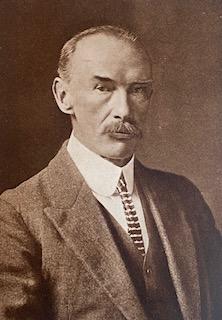Author and colonial administrator
Farm Labourer at ZSL Whipsnade London Zoo
Pathologist at ZSL London Zoo
Pocock was born in Clifton, Bristol, the fourth son of Rev. Nicholas Pocock and Edith Prichard. He began showing interest in natural history at St Edward's School, Oxford. He received tutoring in zoology from Sir Edward Poulton, and was allowed to explore comparative anatomy at the Oxford Museum. He studies biology and geology at University College, Bristol. In 1885 he became an assistant at the Natural History Museum, and worked in the section of entomology for a year. He was put in charge of the collections of arachnida and myriapoda. He was also given the task to arrange the British bird collections, in the course of which he developed as lasting interest in ornithology. The 200 papers he published in his 18 years at the museum brought him recognition as an authority on arachnida and myriapoda; he described between 300 and 400 species of millipedes alone, and also described the scorpion genus Brachistosternus.
In 1904, he left to become Superintendent of London Zoo, remaining so until his retirement in 1923. He then worked as a voluntary researcher in the British Museum, in the mammals department.
He described the leopon in a 1912 to 'The Field', based on examination of a skin sent to him by W S Millard, the secretary of the Bombay Natural History Society.
Helper and Keeper at ZSL London Zoo
Major Poles joined the Northern Rhodesia Game and Tsetse Control Department - now the National Parks and Wildlife Service, Zambia - and was given charge of a vast area centred on Mpika, which included the Luangwa Valley (accessible only on foot)
